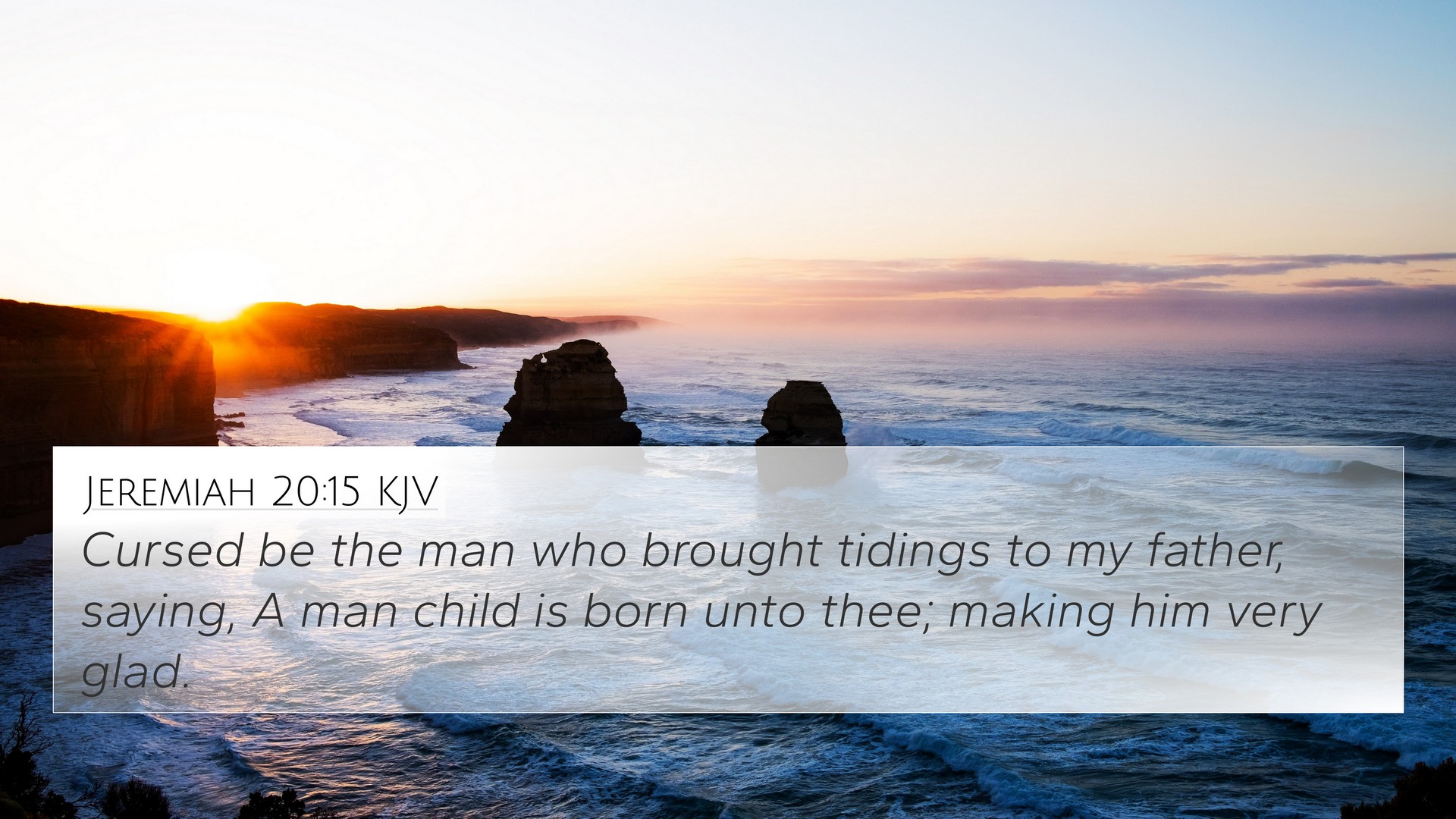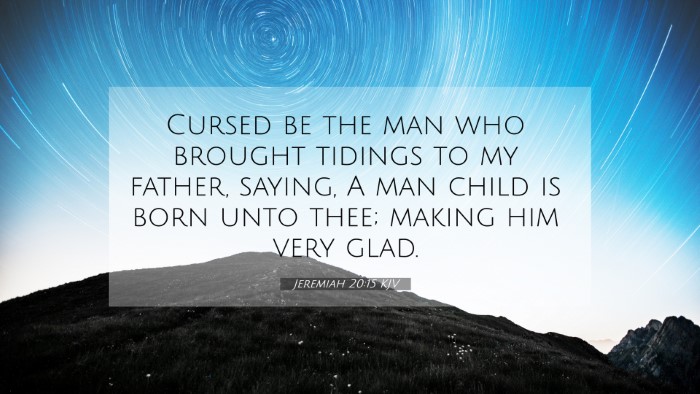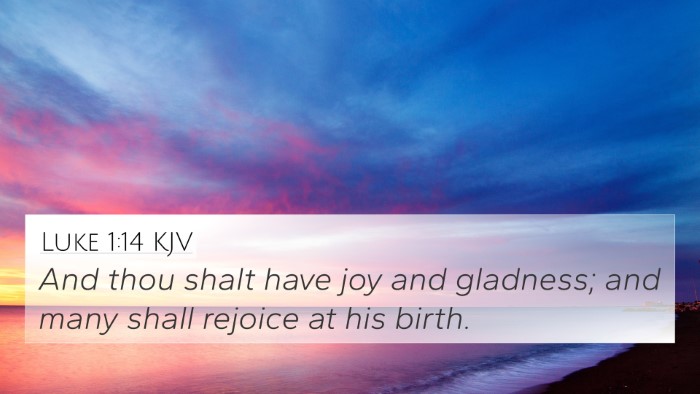Understanding Jeremiah 20:15
Verse Reference: Jeremiah 20:15
“Cursed be the day wherein I was born: let not the day wherein my mother bare me be blessed.”
Meaning and Interpretation
This verse expresses a profound sense of despair from the prophet Jeremiah. Drawing insights from various public domain commentaries, we can better grasp the depth of his lamentation.
Matthew Henry’s Commentary Insights
According to Matthew Henry, Jeremiah’s curse of the day of his birth signifies his overwhelming sorrow and anguish, feeling that his life has led to suffering rather than joy. Henry emphasizes that Jeremiah feels as though his prophetic ministry has only resulted in ridicule and persecution from the people he is called to serve. By cursing the day of his birth, he expresses a desire that he had never come into existence rather than endure the hardships of his calling.
Albert Barnes’ Commentary Insights
Albert Barnes notes that this verse showcases the deep emotional turmoil of the prophet. He points out that the anguish of Jeremiah is rooted in his prophetic calling, which was fraught with opposition and hardship. Barnes explains that cursing the day of birth reflects a deep-seated conviction that his life has been marked by a lack of fulfillment and joy, making one question the purpose of suffering.
Adam Clarke’s Commentary Insights
Adam Clarke contributes to this discussion by interpreting Jeremiah’s lament as a manifestation of intense psychological distress. Clarke remarks that such feelings, while extreme, are not uncommon among those who bear significant burdens. Interestingly, Clarke also highlights the historical context, where the prophet’s woes resonate with the spiritual and social decay of Judah, suggesting that Jeremiah’s despair aligns with the dire conditions of his nation.
Connecting Themes in Jeremiah 20:15
- Despair and Suffering: The emotions expressed by Jeremiah parallel many instances within Scripture where prophets and people of God experience profound sorrow.
- Prophetic Burden: Jeremiah’s lamentation mirrors the burdens borne by other prophets, reflecting a theme of loneliness in their divine callings.
- Questioning Existence: This verse touches on the existential struggle that some biblical figures faced, grappling with the “why” of their suffering.
Related Bible Cross References
- Job 3:3: Job curses the day of his birth, expressing similar sentiments of despair and regret.
- Ecclesiastes 4:3: Acknowledges the futility of life and the suffering experienced by individuals.
- Psalm 22:1: A cry of anguish from David, asking why God has forsaken him, which resonates with Jeremiah’s feelings.
- Jeremiah 1:5: Highlights God’s intention in calling Jeremiah even before he was born, contrasting Jeremiah’s lament.
- Lamentations 3:8-9: Reflects deep sorrow and feelings of being trapped, similar to Jeremiah’s experience.
- Isaiah 49:1: Talks about being called from the womb, emphasizing the beauty of purpose amidst struggle.
- Romans 8:28: Provides a New Testament perspective that all suffering can work towards good, contrasting Jeremiah's despair.
Thematic Connections Across Scripture
Jeremiah 20:15 serves as a crucial point for connecting various themes of suffering, divine calling, and existential crisis throughout the Bible. The parallels between Jeremiah and other biblical figures reveal a pattern of prophetic struggle, reinforcing the notion that being God’s messenger often entails significant personal sacrifice and suffering.
Tools for Bible Cross-Referencing
For those studying this verse and wanting to engage deeply with the text, employing tools for Bible cross-referencing can enhance understanding:
- Utilizing a Bible concordance allows you to find relevant verses related to specific keywords.
- Employing a cross-reference Bible study guide can help in navigating thematic connections between passages.
- Exploring in-depth Bible cross-reference resources facilitates a more comprehensive understanding of topics.
Conclusion
In conclusion, Jeremiah 20:15 expresses profound despair emblematic of the hardships faced by God’s prophets. The explorations of this verse highlight significant themes of suffering, the weight of prophetic duty, and the questioning of existence. When we utilize cross-referencing Bible study methods, we see that these struggles are not isolated, as numerous biblical figures echo similar sentiments through their stories, enhancing our understanding and empathy towards these ancient texts.





